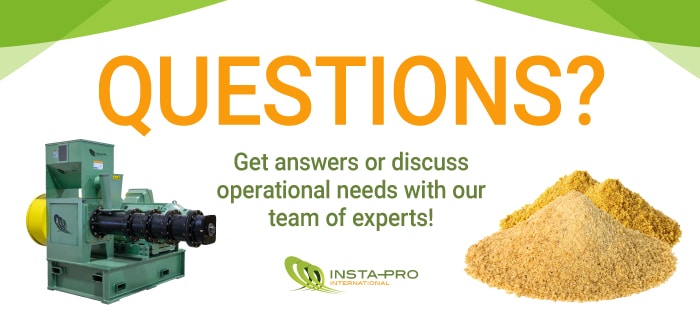How Does an Extruder Work?

We should probably start with what an extruder is. In fancy terms, it is a positive displacement machine designed to apply shear forces to raw ingredients in order to process them into finished goods (whew!). More simply, it is a machine designed to take material and push it through a barrel with a screw. The idea of “extrusion”, though, is to take material and push it out of a container. This would be similar to pushing toothpaste out of a tube. Now that we’ve got that covered, let’s see what this thing can do.
Varieties
Most people are probably familiar with extruders already. If you’ve ever seen pasta or plastic parts being made, you have seen an extruder at work. This is the same idea for the agriculture industry, too. Extruders can typically be categorized as either wet or dry or in terms of shear (low, medium or high). Wet extruders usually have heat applied to them to process ingredients while dry only use the material to create heat. To be more specific, we use shear to describe the type of processing the machine can do:
- Low shear: Used for plastics and pastas
- Medium shear: Shaped products such as pet and fish feed
- High shear: Full fat soy and textured vegetable proteins
Parts
Extruders typically have the following main parts:
Barrel: These hold and contain the screws and raw material
Screws: These convey and mix the material inside of the barrel
Steamlocks: Act as restriction points to create pressure and help cook product
What else?
This was a basic overview of extruders as a whole. Various companies offer different types depending on application. Within this, you can have single and twin screws as well as various attachments and accessories which all have their own advantages and disadvantages. Contact a reputable supplier to see which is right for you and your application!



